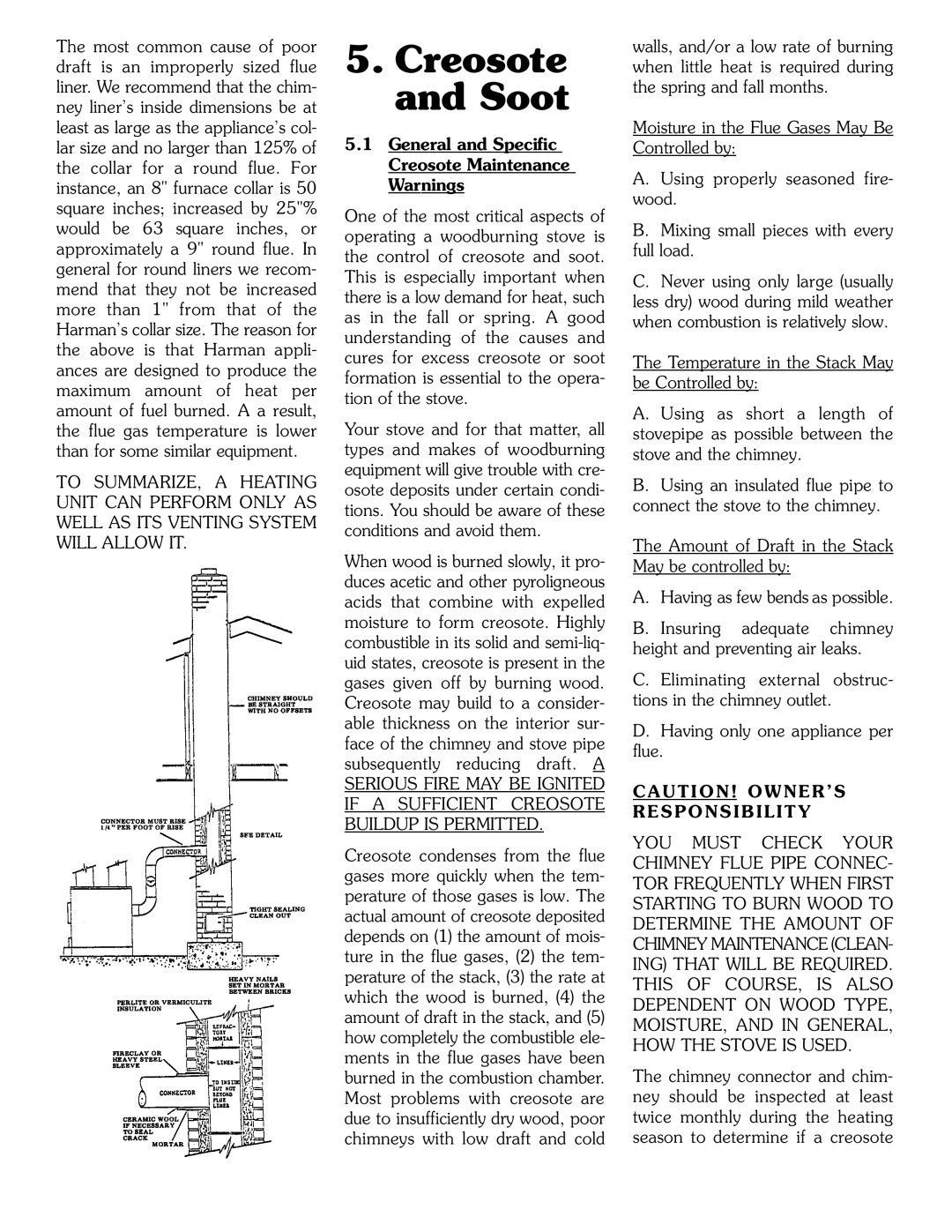SF-150 SF-250 specifications
The Harman Stove Company has long been a name synonymous with quality and innovation in the world of heating appliances. Among its remarkable lineup are the SF-150 and SF-250 pellet stoves, which exemplify the brand's commitment to efficiency, ease of use, and environmental sustainability.The SF-150 model is known for its compact design, making it ideal for smaller spaces without compromising on heating performance. With a heating capacity of up to 1,800 square feet, the SF-150 is perfect for medium-sized homes. This model boasts a sleek, modern aesthetic that complements various decor styles while providing a warm, inviting atmosphere.
One of the standout features of the SF-150 is its advanced combustion technology. Harman's patented Feed System ensures a consistent and efficient burn, maximizing the stove’s fuel economy. The unique air wash system keeps the glass clean, allowing for an unobstructed view of the flames and a cozy ambiance. Additionally, the SF-150 employs smart control technology, enabling users to adjust settings easily and remotely, ensuring optimal comfort at all times.
Moving on to the SF-250, this model is designed for larger spaces and offers a powerful heating output of up to 2,200 square feet. Its robust build and substantial hopper capacity allow for extended burn times with fewer refills, making it a convenient option for homeowners with busy lifestyles. The SF-250 also features a top-loading design, simplifying the process of adding fuel without the mess.
Both models are equipped with Harman's patented Smart Control technology, which allows users to monitor and control their stoves via a mobile app. This feature adds convenience, as it enables remote operation and monitoring of fuel levels, burn rate, and temperatures from anywhere in the home.
In terms of construction, both the SF-150 and SF-250 are built with high-quality materials, ensuring durability and longevity. Their EPA-certified designs make them environmentally friendly options, producing minimal emissions and promoting clean burning.
Whether you choose the SF-150 for its compact functionality or the SF-250 for its powerful heating capability, Harman Stove Company's pellet stoves stand out for their blend of modern technology, aesthetic appeal, and efficient performance. These models not only provide warmth and comfort but also contribute to a sustainable future.

